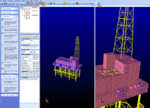 The Validated End User program of the Bureau of Industry and Security (“BIS”) has experienced a fox-in-the-henhouse moment and may come crashing to a screeching halt. Apparently two of the five companies first awarded Validated End User status have ties to the Chinese military, prompting an inquiry by one U.S. lawmaker as to how this might have occurred.
The Validated End User program of the Bureau of Industry and Security (“BIS”) has experienced a fox-in-the-henhouse moment and may come crashing to a screeching halt. Apparently two of the five companies first awarded Validated End User status have ties to the Chinese military, prompting an inquiry by one U.S. lawmaker as to how this might have occurred.
Back in October, BIS announced its first participants in the Validated End User program in China. Chinese companies with a “record of using [dual-use] items responsibly” are eligible for the status of a Validated End User after review by BIS. Under the program, certain dual use items may be exported and re-exported to the Validated End User without a license from BIS.
Unfortunately, according to this AP wire report, two of the five Validated End Users — Shanghai Hua Hong NEC Electronics Co. Ltd. and BHA Aerocomposite Parts Co. Ltd. — have links to the Chinese military. Hua Hong NEC is owned by China Electronics Corp., which provides electronics to China’s People’s Liberation Army. And BHA Aerocomposite is partly owned by China Aviation Industry Corporation I, a state-owned company that makes Chinese military aircraft. Its other owners are two U.S companies: Boeing and Hexcel.
As a result of these revelations, first reported by the Wisconsin Project on Nuclear Arms Control, U.S. Representative Edward Markey sent a letter of inquiry to the Department of Commerce questioning whether BIS’s Validated End User program “has unwisely reduced controls on the sale of dual-use American products with significant links to the the People’s Liberation Army.” The letter requests information relating to the process by which the two companies were designated under the Validated End User program.
Although the designation of Hua Hong NEC clearly seems problematic, I am less convinced that BHA Composites wasn’t properly designated as a Validated End User. After all, BHA is a joint venture that includes two U.S. companies, which should significantly reduce the risk of diversion of dual use products to the Chinese military. The Chinese partner, AVIC I, owns only one-third of the joint venture. The Wisconsin Project argued that Boeing and Hexcel “have a history of violating U.S. export controls that should have barred BHA from consideration.” Admittedly, both companies have entered into settlement agreements relating to export violations, but none of the violations involved illegal exports to the Chinese military or otherwise suggest that the two companies would engage in illegal exports to the Chinese military.

 Posted by
Posted by  Category:
Category: 

 The Bureau of Industry and Security (“BIS”) released, on January 23, a
The Bureau of Industry and Security (“BIS”) released, on January 23, a  A copy of the indictment of two Louisiana men for selling CAD software to companies in Iran which we
A copy of the indictment of two Louisiana men for selling CAD software to companies in Iran which we  According to an Associated Press
According to an Associated Press 



